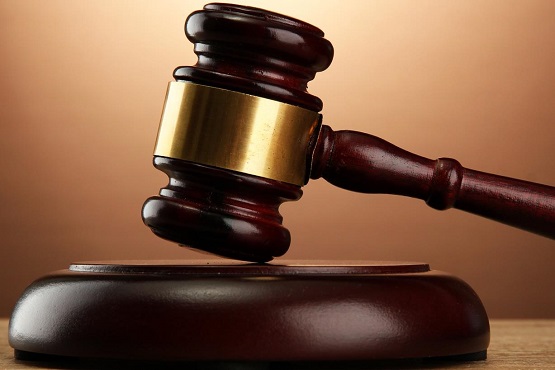Today, Wyoming was supposed to become the next state to protect babies from abortions. But a state judge blocked the pro-life law from taking effect.
Gov. Mark Gordon has taken necessary action to activate the state’s trigger law, enacted prior to the Supreme Court overturning Roe that would go into effect 30 days after any decision to overturn the infamous pro-abortion case. The new Wyoming abortion ban bans abortions except in cases of rape or incest or to protect the mother’s life.
Gordon signed the bill into law in March anticipating Roe would be reversed. After the June 24th decision, Attorney General Bridget Hill reviewed the law to ensure it conforms with the high court’s ruling and Hill completed her review at the end of last week.
But today, a state judge stopped the law.
Attorneys arguing before Teton County District Judge Melissa Owens, in Jackson, disagreed over whether the Wyoming Constitution provided a right to abortion.
Owens was sympathetic with arguments that the ban left pregnant patients with dangerous complications and their doctors in a difficult position as they balanced serious medical risks against the possibility of prosecution.
“That is a possible irreparable injury to the plaintiffs. They are left with no guidance,” Owens said.
REACH PRO-LIFE PEOPLE WORLDWIDE! Advertise with LifeNews to reach hundreds of thousands of pro-life readers every week. Contact us today.
The four Wyoming women and two nonprofits that sued Monday claim the new law violates several rights guaranteed by the state constitution, including a “fundamental right to be left alone by the government.”
But that state right has nothing to do with abortion or killing babies and reflects the libertarian leanings of the state for its residents to be free from government interference.
Jay Jerde, the lawyer representing the state of Wyoming, said that the lawyers for the plaintiff did not provide a proper rationale for why the Wyoming constitution would allow for abortion, that they don’t stand a good chance of winning their case, and that they didn’t show irreparable injury if the abortion ban was to be implemented.
Earlier this week, Gordon said the state will continue to help women and children.
“I believe that the decision to regulate abortion is properly left to the states,” Gordon said in a statement. “As a pro-life governor, my focus will continue to be on ensuring we are doing all we can to support Wyoming mothers, children and families.”
Rep. Rachel Rodriguez-Williams, R-Cody sponsored the trigger law and said “The vast majority of Wyomingites support life from conception to natural death.”
The legislation would save nearly 100 unborn babies every year. Wyoming reported 91 abortions in 2020, according to the Charlotte Lozier Institute.
As LifeNews reported, the Supreme Court has overturned Roe v. Wade, with a 6-3 majority ruling in the Dobbs case that “The Constitution does not confer a right to abortion” — allowing states to ban abortions and protect unborn babies. The high court also ruled 6-3 uphold the Mississippi 15-week abortion ban so states can further limit abortions and to get rid of the false viability standard.
Chief Justice John Roberts technically voted for the judgment but, in his concurring opinion, disagreed with the reasoning and said he wanted to keep abortions legal but with a new standard.
Texas and Oklahoma had banned abortions before Roe was overturned and Missouri became the first state after Roe to protect babies from abortions and South Dakota became the 2nd. Then Arkansas became the third state protecting babies from abortions and Kentucky became the 4th and Louisiana became the 5th and Ohio became the 6th and Utah became the 7th and Oklahoma became the 8th and Alabama became the 9th. This week, Mississippi became the 10th and South Carolina became the 11th,Texas became the 12th with its pre-Roe law and Tennessee became the 13th.
Michigan, Wisconsin and West Virginia have old pro-life laws on the books but there is question about whether they are applicable and will be enforced.
Ultimately, as many as 26 states could immediately or quickly ban abortions and protect babies from certain death for the first time in nearly 50 years.
The 13 total states with trigger laws that would effectively ban all or most abortions are: Arkansas, Idaho, Kentucky, Louisiana, Missouri, Mississippi, North Dakota, Oklahoma, South Dakota, Tennessee, Texas, Utah and Wyoming.
“Abortion presents a profound moral question. The Constitution does not prohibit the citizens of each State from regulating or prohibiting abortion. Roe and Casey arrogated that authority. We now overrule those decisions and return that authority to the people and their elected representatives,” Alito wrote.
“Roe was egregiously wrong from the start. Its reasoning was exceptionally weak, and the decision has had damaging consequences,” Alito wrote. “And far from bringing about a national settlement of the abortion issue, Roe and Casey have enflamed debate and deepened division.”
Justices Sonia Sotomayor, Elena Kagan and Stephen Breyer authored a joint dissent condemning the decision as enabling states to enact “draconian” restrictions on women.
Polls show Americans are pro-life on abortion and a new national poll shows 75% of Americans essentially agree with the Supreme Court overturning Roe.








